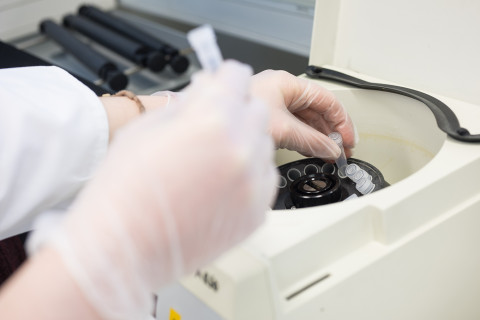The world’s first undergraduate textbook on epigenetics focusing on humans has just been released by University of Eastern Finland Professor Carsten Carlberg and Nazarbayev University Associate Professor Ferdinand Molnár. The Springer textbook Human Epigenetics: How Science Works describes the role of epigenetics both in health and disease.
Epigenetics refers to changes in gene function that do not involve changes in the DNA sequence, and that can be affected by external factors, such as our diet. In the cell nucleus, our genes are packed into chromatin, which is a complex of histone proteins and genomic DNA. Epigenetic mechanisms involve DNA methylation, histone modifications and 3D chromatin organization.
“Epigenetics provides a molecular explanation for how our genome is connected with environmental signals,” the authors explain.
They point out that most non-communicable human diseases have a genetic, inherited component as well as an epigenetic component, which is based on our lifestyle choices and environmental exposures.
“This means that the genetic predisposition for a disease can be counterbalanced by an appropriate healthy lifestyle that modulates the epigenome of the affected tissues. It is well known that there is a high level of individual responsibility for staying healthy, but a detailed understanding of epigenetics provides a molecular explanation for this life philosophy.”
The book discusses the central importance of epigenetics during embryogenesis and cellular differentiation as well as in the process of aging and the risk for the development of cancer. Moreover, the role of the epigenome as a molecular storage of cellular events, not only in the brain but also in metabolic organs and in the immune system, is described. In this context, epigenetic effects on neurodegenerative diseases as well as autism, metabolic diseases, such as type 2 diabetes, and disorders based on a malfunctional immune system, such as autoimmunity, are discussed.
The content of the book is linked to a series of lecture courses given by Professor Carlberg at the University of Eastern Finland in Kuopio, and the book is used on the course Molecular Medicine and Genetics (MMG) at the University of Eastern Finland. The new book represents an updated and simplified version of the authors’ earlier textbook, Human Epigenomics. It also relates to their other textbooks, Mechanisms of Gene Regulation and Nutrigenomics.
Carsten Carlberg is Professor of Biochemistry at the Institute of Biomedicine at the University of Eastern Finland. His work focuses on mechanisms of gene regulation by nuclear hormones, in particular on vitamin D. At present Professor Carlberg has projects on epigenome-wide effects of vitamin D on the human immune system. Ferdinand Molnár has worked as a researcher at the University of Eastern Finland for over 10 years, and he currently holds an Associate Professor position at the Department of Biology at the Nazarbayev University in Kazakhstan. His interests are integrative structural biology and bioinformatics, eukaryotic transcriptional regulation in health and disease, and recombinant protein production.
For further information, please contact:
Professor Carsten Carlberg, Carsten.carlberg (a) uef.fi, +358 403553062
Carlberg, Carsten, Molnar, Ferdinand. Human Epigenetics: How Science Works. Springer 2019. https://www.springer.com/gp/book/9783030229061

